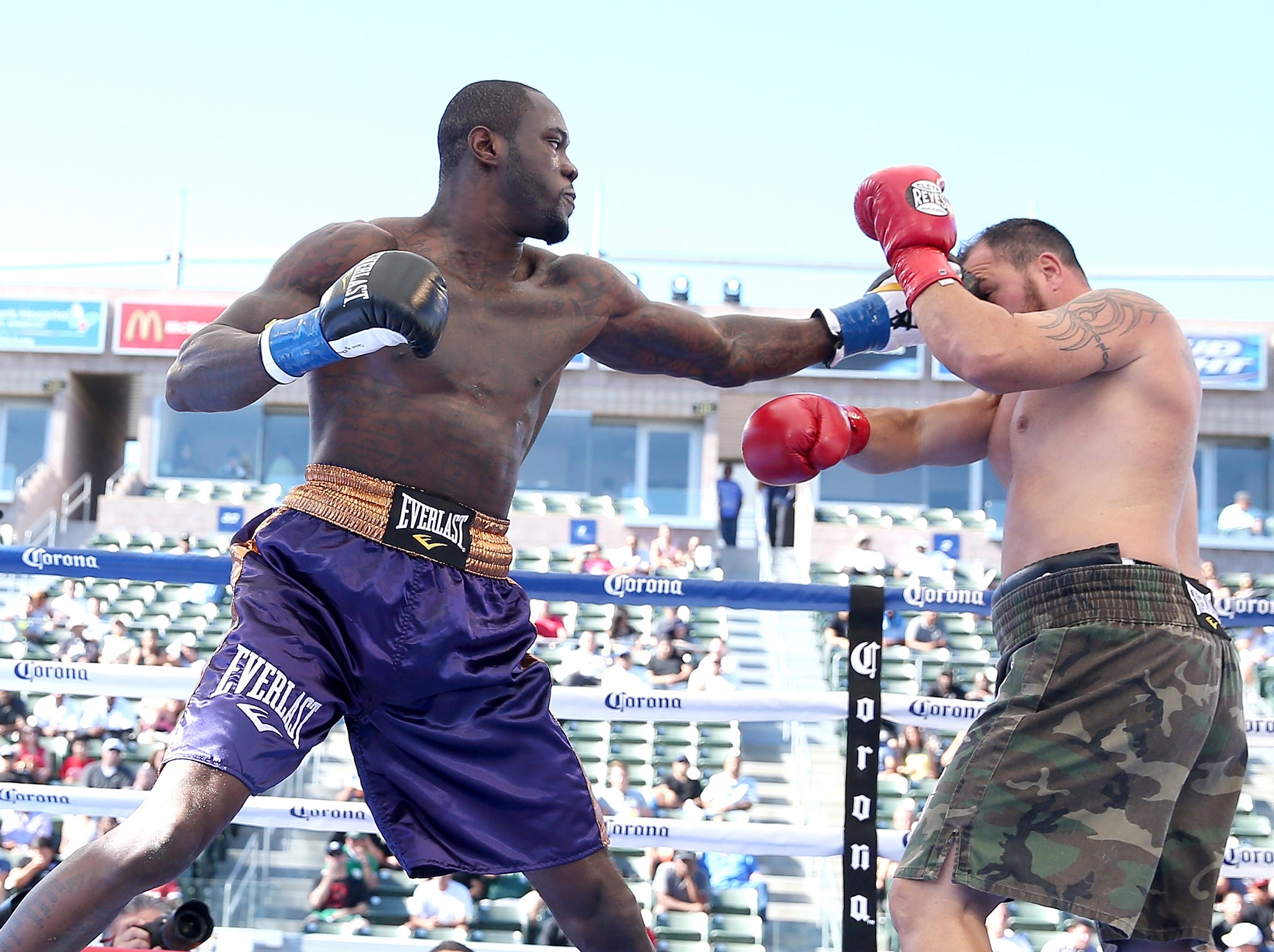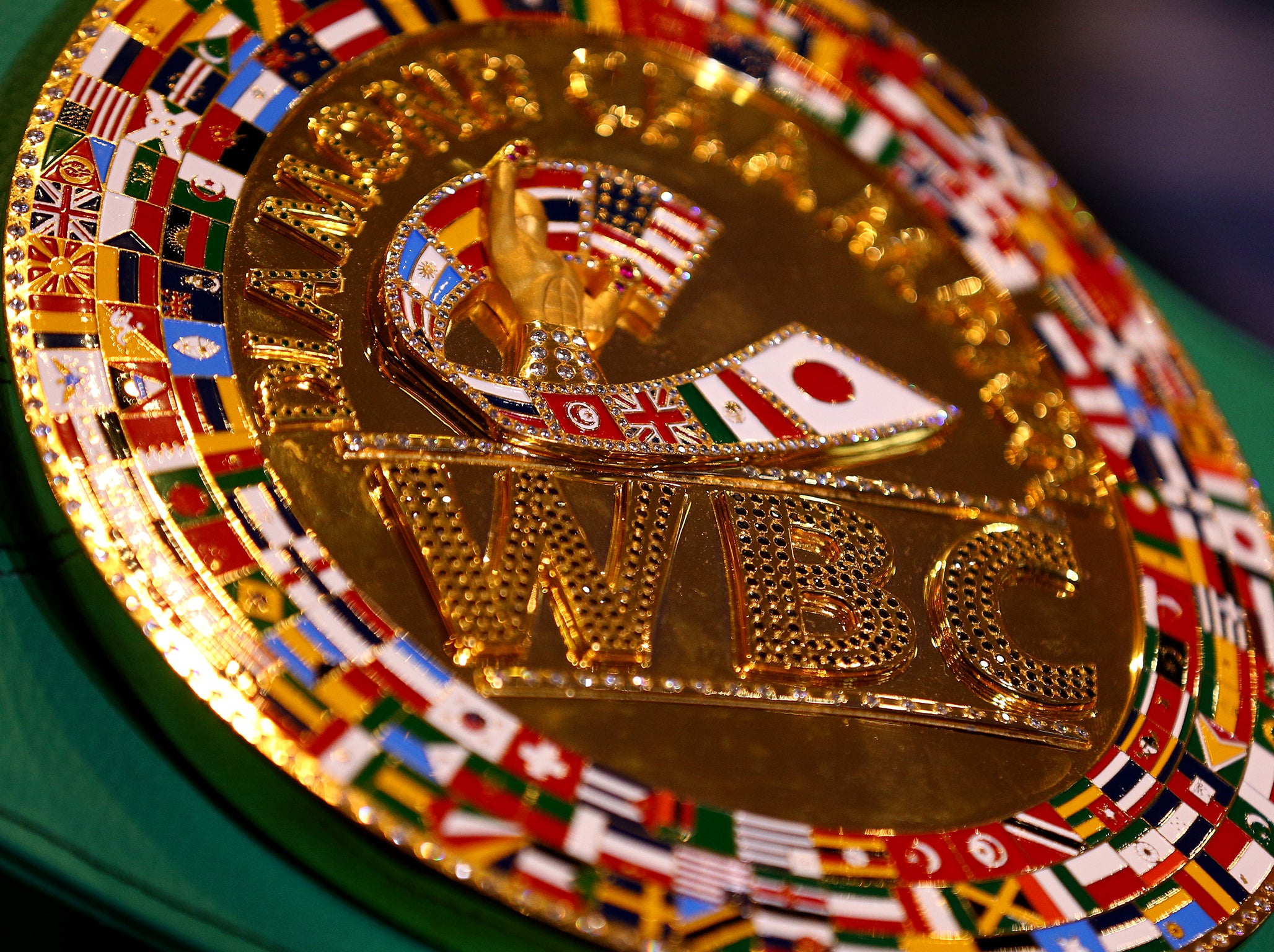Deontay Wilder on the precipice of completing his lonely journey through the wilderness of American boxing
Long before he agreed to take on Tyson Fury, Wilder was an unwanted heavyweight starring at plastic hotels and tiny casinos, where his fights competed with the midnight buffet and often lost

Your support helps us to tell the story
From reproductive rights to climate change to Big Tech, The Independent is on the ground when the story is developing. Whether it's investigating the financials of Elon Musk's pro-Trump PAC or producing our latest documentary, 'The A Word', which shines a light on the American women fighting for reproductive rights, we know how important it is to parse out the facts from the messaging.
At such a critical moment in US history, we need reporters on the ground. Your donation allows us to keep sending journalists to speak to both sides of the story.
The Independent is trusted by Americans across the entire political spectrum. And unlike many other quality news outlets, we choose not to lock Americans out of our reporting and analysis with paywalls. We believe quality journalism should be available to everyone, paid for by those who can afford it.
Your support makes all the difference.Deontay Wilder took care of unknown men in anonymous rooms during a desperate journey across the lost lands of boxing in America at the start of his career.
Wilder was an unwanted heavyweight, scratching away in a harsh landscape and in front of punters who had turned their back on the traditional saviours of the sport to become addicted to the slick packaging of the pay-per-view boys and their increasingly contrived fights.
Heavyweights were dead in America ten years ago when Wilder turned professional and even his bronze medal from the Beijing Olympics, a traditional trinket of value for an American, failed to save the boxer from the plastic hotels and tiny casinos where his fights competed with the midnight buffet and often lost.
Wilder kept on hitting men like Kelsey Arnold, a winner of just one of his five fights before Wilder ruined him in 73 seconds at the Desert Diamond Casino in Tucson. It was Wilder’s sixth win, his fifth in the first round and six weeks later he was back in the Diamond ring and this time he needed 90 seconds to blast Travis Allen, who slipped away into the desert night with 500 dollars to ease his suffering and his fifth loss in eight fights. Arnold dropped to nine defeats and just four wins before vanishing in 2011 and Allen never fought again.
This is a circuit unchanged since the Thirties, jammed with untraceable men.
“I’m not an overnight success,” said Wilder last week. “I’ve been working on this for ten years and they have been hard years. I’m now 40 and 0, with 39 knockouts.”
The one man that took Wilder the full distance, Bermane Stiverne, was dropped three times and stopped in the first round of a rematch last November in a fight that should have turned the stomach of anybody with an ounce of boxing dignity. Stiverne was in dreadful shape physically and entered the ring looking for the exit.
Next for Wilder it will be Tyson Fury at the Staples Centre in Los Angeles on December 1 in a fight only made possible because of the bravery of both boxers to take a risk. Wilder has more to lose, he has no escape clauses to deliver in defeat; Fury can always claim the opportunity came too soon, but that he had to grab it or lose relevance. It is a truly refreshing fight in a booming business where it is hard not to be cynical and ugly at some of the easily attained excess.
Wilder has now had eight WBC heavyweight championship fights and in modern terms he has beaten the right men, stopping and dropping and bruising and hurting the usual suspects without a single sign of mercy. Wilder likes beating people, insists he has the ability to hurt without feeling a thing.
“I can smile and take you out, I have that killer instinct,” he claims. “It’s never personal with me. I don’t have to get mad and in your face. I can just switch.”

He has certainly been ruthless in fights against static, exhausted heavyweights and he has also drifted against a few tough men with four of his defences going nine or more rounds, before the bludgeoning ends.
In his last fight, Wilder was caught, hurt and staggered by the Cuban Luis Ortiz in a gruelling slugfest. Wilder finished it in sickening style in round ten and was winning by just one point on all three of the scorecards, which should not be a shock as Ortiz had been avoided, was nearly 30 pounds heavier and was unbeaten in 28 fights. There is an argument that Wilder, in his 40th fight, finally had to fight. That, in my opinion, is a dangerous assumption.
In Los Angeles on December 1 it will be Fury’s turn to weave some magical moves, frustrate and test Wilder in a heavyweight fight that might just complete the evangelical work Wilder has been doing on his solo mission in the wilderness of American boxing during the last decade. Wilder also likes to preach from the other pulpit, his bible now worn from study.

The WBC’s belt is the official prize, the cash is the real bounty, but there is also recognition available to the winner for daring to agree to a fight that the sport needs in these glory days where too many men talk of billions, assume a regal attitude and flash their faces on neon signs that illuminate the streets. This is the heavyweight championship of the world, a place where men are mean and certainly not a popularity contest.
Join our commenting forum
Join thought-provoking conversations, follow other Independent readers and see their replies
Comments